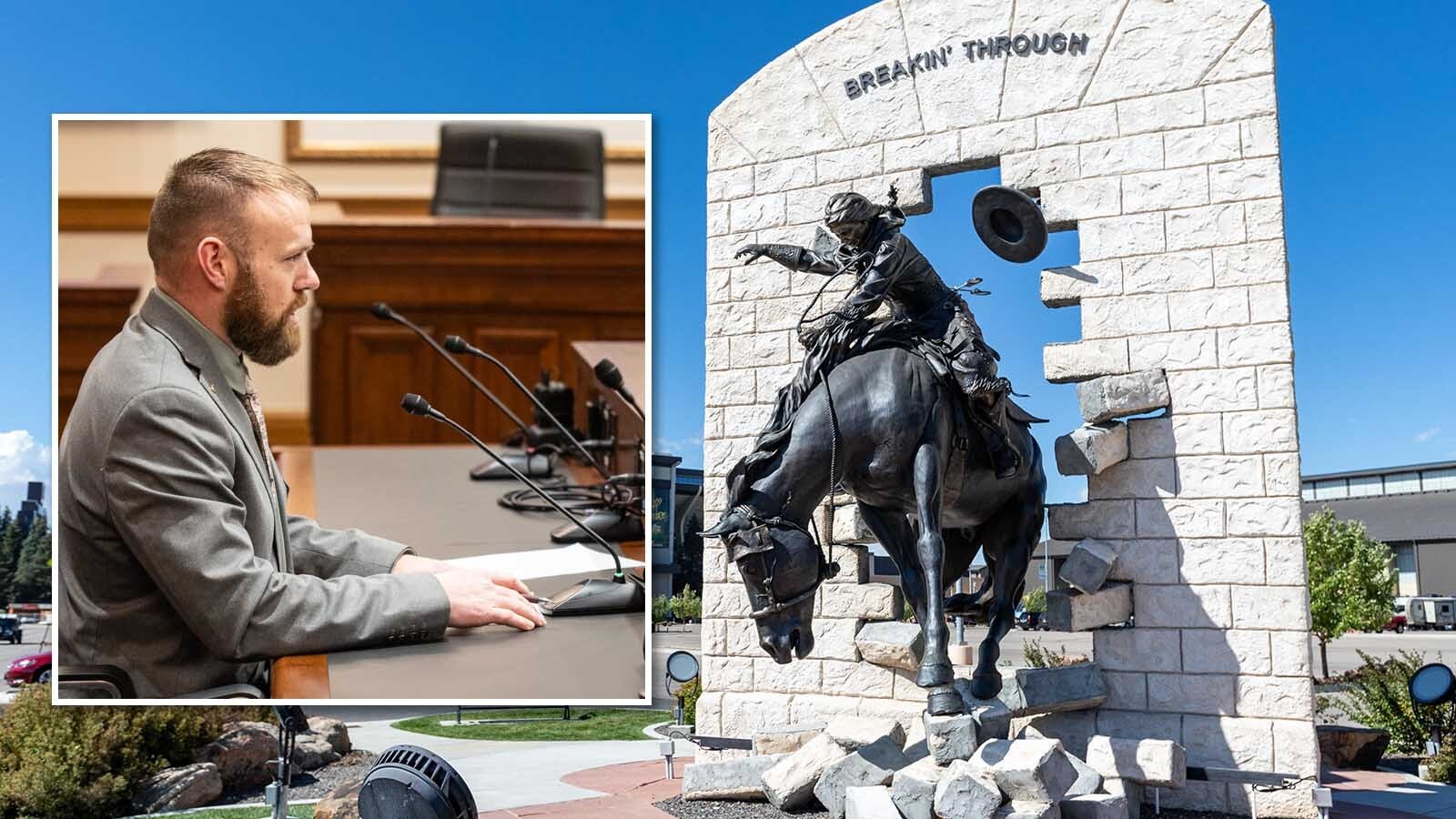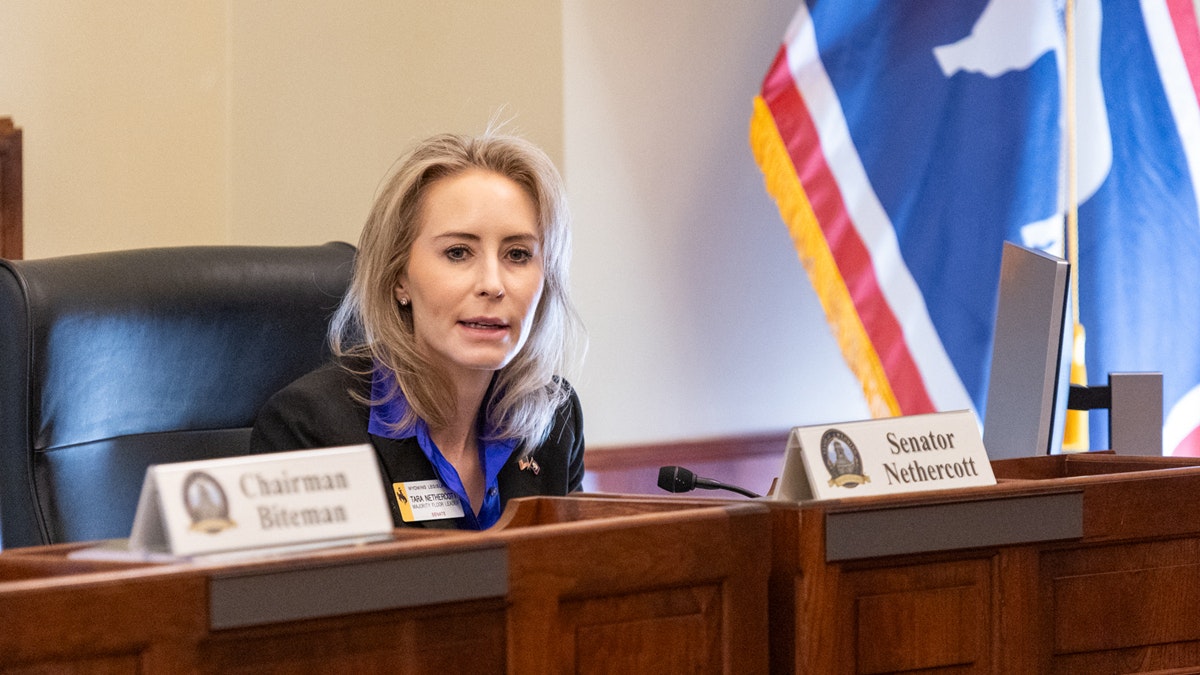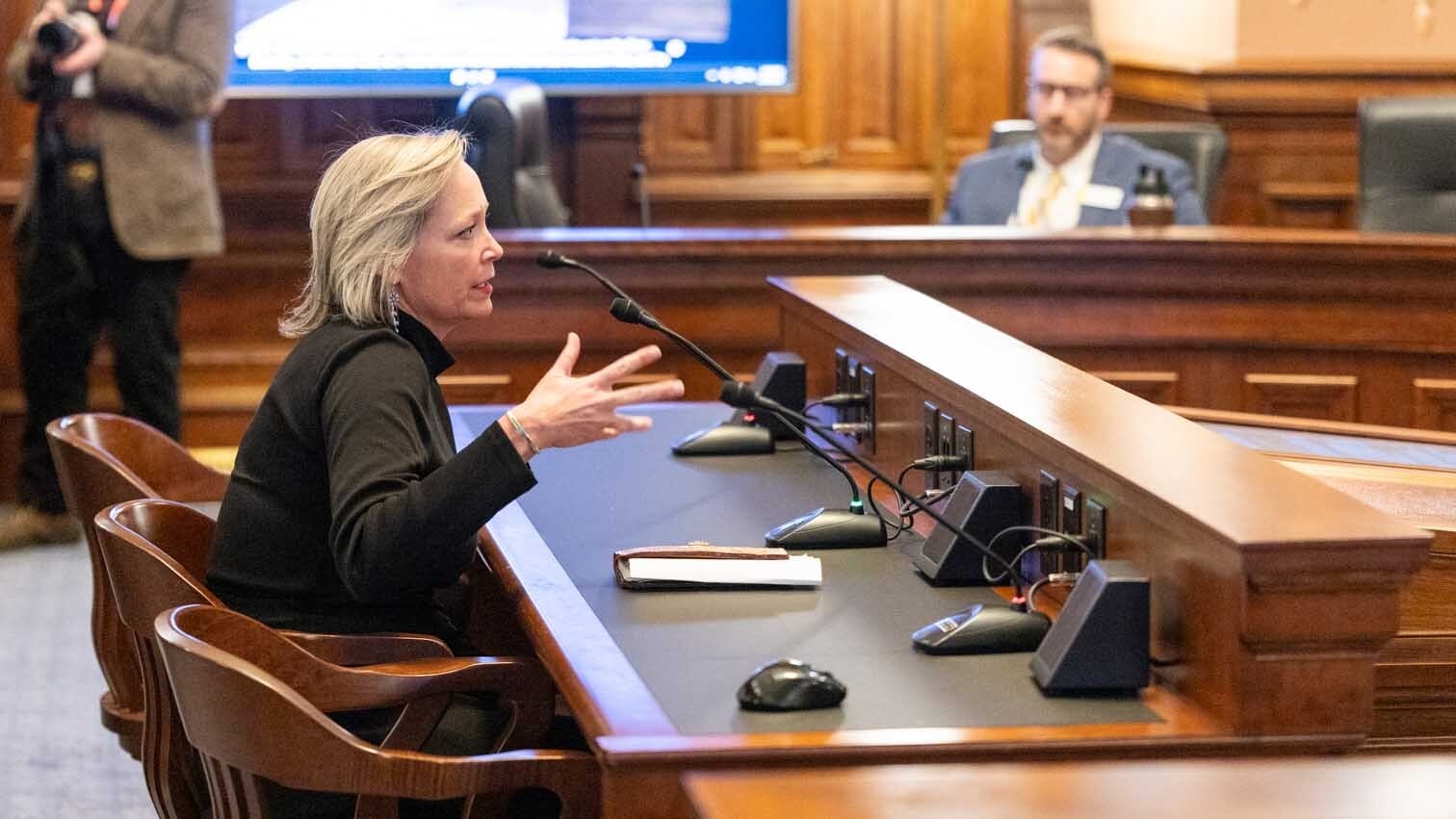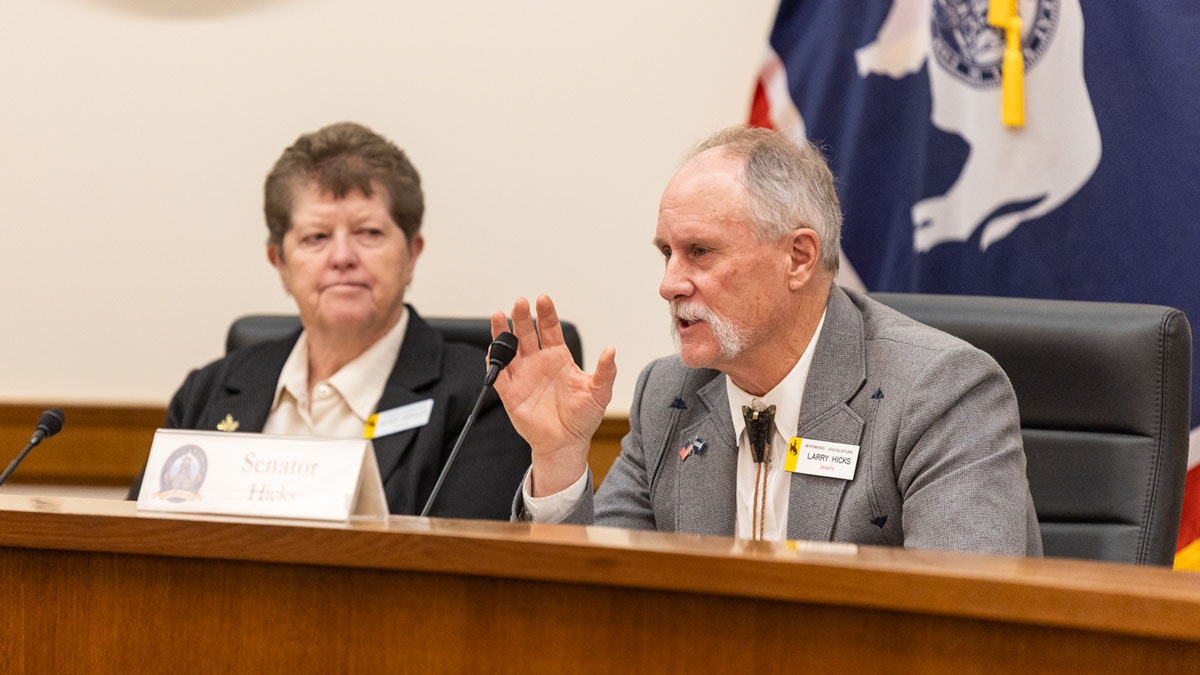The rift between Secretary of State Chuck Gray and certain members of the Wyoming Legislature continues to widen.
On Thursday, the Legislature’s Management Council sent a letter to Gov. Mark Gordon recommending with a 7-2 vote that he reject Gray’s proposed rules to tighten voter registration requirements at the polls.
If approved by the governor, the new rules would require people registering to vote in Wyoming an additional requirement to prove residency if their form of identification doesn’t already show it.
With their vote, the council approved a letter written by Matt Obrecht, director of the Legislative Service Office (LSO), and its senior staff attorney Brian Fuller, who wrote that the proposed rules don’t fall within the scope of authority granted to the secretary of state.
This is a similar argument to the one made by state legislators who spoke against Gray’s rules at a Jan. 26 hearing on the matter, although most of the people who attended the meeting expressed support for the rules.
Gray: It’s In My Wheelhouse
Gray said the rules are within his statutory authority to ensure a voter is properly identified as a citizen of the United States and a resident of Wyoming, both requirements under the Wyoming Constitution and state law.
He also said the LSO memo ignores that his rules solely require proof of Wyoming residence.
“Our rulemaking ensures that only Wyomingites are able to vote in Wyoming, not non-residents and illegal aliens,” Gray told Cowboy State Daily. “As did some members of the Management Council, I disagree with the Legislative Service Office’s recommendation and analysis, and would encourage the governor to sign the rules as written to ensure illegal immigrants cannot vote in Wyoming elections.”
The council’s recommendation is only that, and it will be up to the governor to accept the rules, recommend Gray rescind them or amend them to address LSO’s concerns.
State Rep. Dan Zwonitzer, R-Cheyenne, a member of the council who voted against accepting Gray’s rules, told Cowboy State Daily there appears to be an ongoing trend at play.
“It’s certainly concerning considering state statute doesn’t give him that authority to make these changes,” Zwonitzer said of Gray’s rules. “It’s the second time in six months the Legislature has said that we think he’s exceeding his authority in this realm.”
Gray also had a significant part of his proposed environmental, social and governance (ESG) rules vetoed by the governor in February.
He submitted his final voter registration rules about one week before that veto to LSO on Feb. 21.
All About Proof
Wyoming law specifies that a voter registrant shall be required to provide a “current residence address or if living in another state or nation, his last residence address in Wyoming.” The law also defines "registration" as “the entry and verification of the name and voter information of a qualified elector on the official registry list.”
Although current Wyoming law requires people to list their “current resident address” to register to vote, there is no reference as to how exactly residency is to be definitively proven.
In an August 2023 memo, the state’s county clerks acknowledged that the current registration process lacks a verification process for proving residency, which Gray said may contradict current law.
“Thus, the proposed rules simply provide a reasonable means whereby a required prerequisite to voter registration is verified through acceptable identification for proof of residency,” Gray said.
Why Can’t He Say?
In their five-page brief, Obrecht and Fuller argue that only the Legislature would have to make the kind of changes Gray wants.
“Ultimately, there does not appear to be a provision in the election code, whether read separately or in conjunction with other provisions of the code, that authorizes the secretary of state to establish rules to require proof of residency when registering to vote,” Obrecht and Fuller write.
Under the rules, a person who provides a valid Wyoming driver's license, or a tribal identification card that contains a Wyoming driver's license number, or the last four digits of a Social Security number at the time of registration will have provided sufficient proof of identity and residency.
Those who do not have these forms of identification can provide the last four digits of their Social Security number and a variety of other documents to verify identification.
Obrecht and Fuller said there are no problems with Gray’s rules as far as adding additional documents or clarifying proofs of identity.
One of the biggest concerns the clerks and residents raised in January about the originally drafted rules is that they would require people who have a P.O. box listed on their IDs to supply an additional form of identification to prove their current residence. Gray broadened his final rules to allow any identification showing some form of current Wyoming residence.
Zwonitzer said Gray appeared to listen to this concern but ignored all others.
Specific Problems
What specifically draws the Legislative Service Office’s concern is the creation of a new requirement to prove residency when people register to vote.
“There do not appear to be any statutory provisions that expressly and unambiguously authorize the promulgation of rules for proof of residency by the secretary of state, either when registering to vote or before actually voting,” Obrecht and Fuller write.
Although “residence” is defined in state law, this definition does not authorize the creation of rules concerning residency. This action, Obrecht and Fuller write, would have to be made by the Legislature.
Under the election code, county clerks must investigate the qualifications of any voter registration if a clerk believes a voter may be unqualified. The code also grants clerks discretion to consider “any other residency qualifications” provided by law or deemed reasonable for the clerk to make a determination.
Obrecht and Fuller write that current law does not cover how identification must prove residency requirements.
They also said mechanisms already exist within the law for questioning proof of residency. In those situations, a voter can be given a provisional ballot and be required to take an oath that they are a legal resident.
Obrecht also said it’s unclear whether Gray’s rules would allow for voters to appeal as they are now allowed to do if it is determined they don’t have legal identification to vote.
“To the extent the rules shift the burden to the individual to prove the individual’s voter qualifications when registering, and limit the methods used by the county clerks to verify voter qualifications, the rules appear to be contrary to statute,” Obrecht and Fuller write.
The secretary of state has the authority to prepare directives, forms and advice on election laws and certain rules as “necessary to maintain uniform voting and vote counting procedures and orderly voting,” which Gray argues extends to voter registration.
“A necessary, and essential, element to maintaining uniform voting in accordance with Wyoming’s election laws is through the enforcement of Wyoming statute that sets forth the qualifications for registration to vote and voter eligibility,” Gray said.
Obrecht and Fuller disagree and say the secretary of state’s authority does not extend to voter registration.
Other Issues
Gray’s rules also prohibit non-U.S. citizens from voting if they provide identification showing they aren’t citizens, which Obrecht and Fuller write is also outside Gray’s authority.
“While the change to the rule may tangentially be related to the rules concerning identification, Wyoming law does not appear to authorize the secretary of state to establish rules to require proof of citizenship when registering to vote,” they write.
Gray said he found LSO’s determination on this issue “deeply troubling.”
“I stand behind this rulemaking, which provides the necessary protections and safeguards to ensure illegal aliens are not voting in Wyoming elections,” Gray said. “I urge the governor to stand with our sound legal arguments, and commonsense measures to stop illegal immigrants from registering to vote in Wyoming, by signing these rules.”
Although he hasn’t submitted any drafted rules on the matter, Gray has also vowed in the past that he will prohibit ballot drop boxes in Wyoming.
“With ballot drop boxes, I certainly hope he takes heed of the first two attempts where he exceeded his authority,” Zwonitzer said. “Hopefully the secretary of state’s office does its due diligence in the future before issuing a new set of rules.”
Leo Wolfson can be reached at leo@cowboystatedaily.com.





